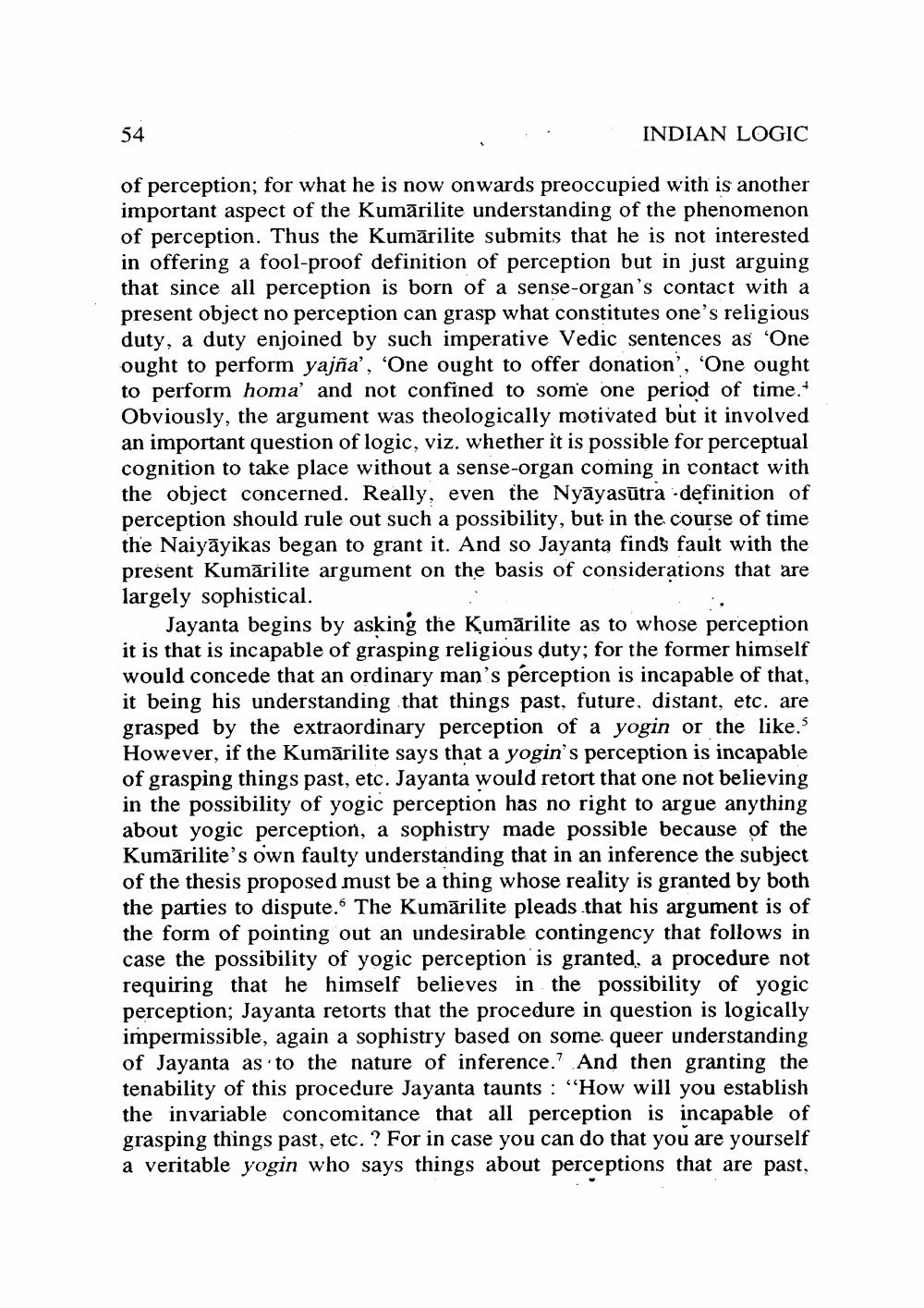________________
54
INDIAN LOGIC
of perception; for what he is now onwards preoccupied with is another important aspect of the Kumārilite understanding of the phenomenon of perception. Thus the Kumārilite submits that he is not interested in offering a fool-proof definition of perception but in just arguing that since all perception is born of a sense-organ's contact with a present object no perception can grasp what constitutes one's religious duty, a duty enjoined by such imperative Vedic sentences as 'One ought to perform yajña', 'One ought to offer donation', 'One ought to perform homa' and not confined to some one period of time. Obviously, the argument was theologically motivated but it involved an important question of logic, viz. whether it is possible for perceptual cognition to take place without a sense-organ coming in contact with the object concerned. Really, even the Nyāyasūtra definition of perception should rule out such a possibility, but in the course of time the Naiyāyikas began to grant it. And so Jayanta finds fault with the present Kumārilite argument on the basis of considerations that are largely sophistical.
Jayanta begins by asking the Kumārilite as to whose perception it is that is incapable of grasping religious duty; for the former himself would concede that an ordinary man's perception is incapable of that, it being his understanding that things past, future, distant, etc. are grasped by the extraordinary perception of a yogin or the like. However, if the Kumārilite says that a yogin's perception is incapable of grasping things past, etc. Jayanta would retort that one not believing in the possibility of yogic perception has no right to argue anything about yogic perception, a sophistry made possible because of the Kumārilite's own faulty understanding that in an inference the subject of the thesis proposed must be a thing whose reality is granted by both the parties to dispute. The Kumārilite pleads that his argument is of the form of pointing out an undesirable contingency that follows in case the possibility of yogic perception is granted, a procedure not requiring that he himself believes in the possibility of yogic perception; Jayanta retorts that the procedure in question is logically impermissible, again a sophistry based on some queer understanding of Jayanta as to the nature of inference. And then granting the tenability of this procedure Jayanta taunts : "How will you establish the invariable concomitance that all perception is incapable of grasping things past, etc. ? For in case you can do that you are yourself a veritable yogin who says things about perceptions that are past,




